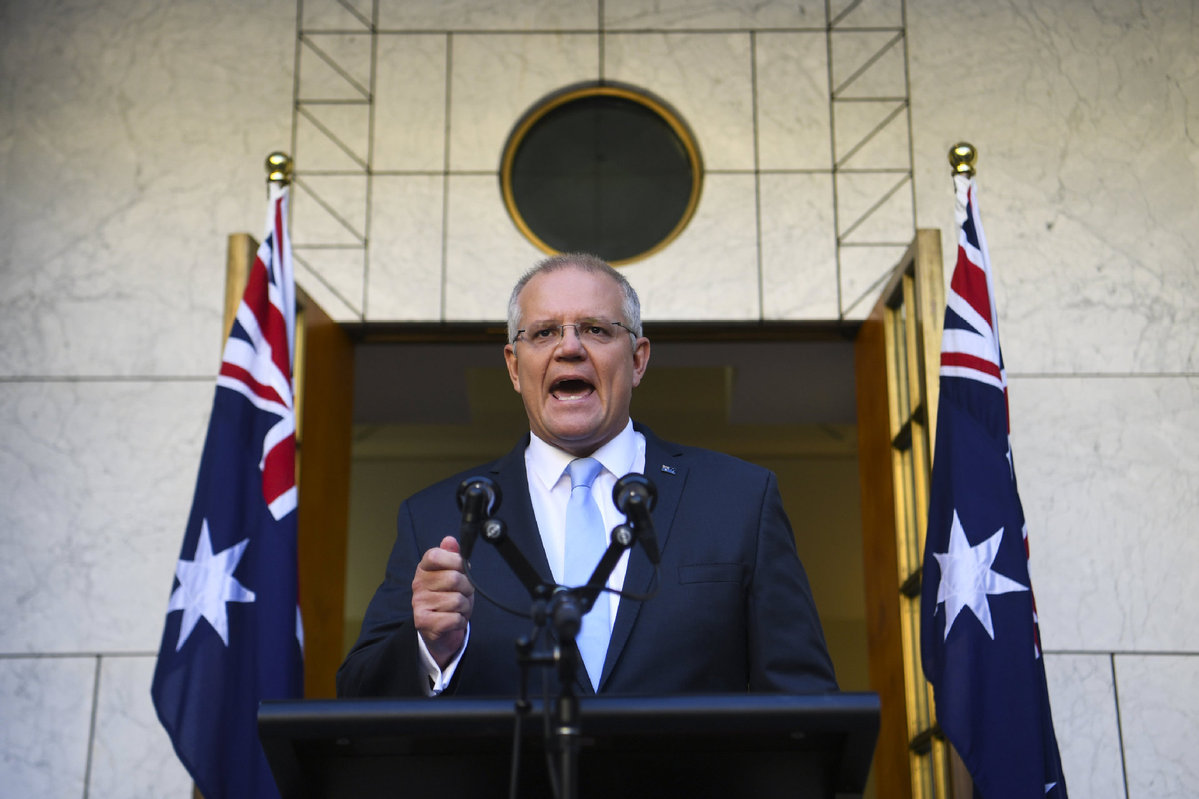Canberra right to see Beijing as partner: China Daily editorial
chinadaily.com.cn | Updated: 2019-09-24 21:24

Canberra right to see Beijing as partner: China Daily editorial
Considering its rising global standing and its status as the world's second largest economy, it is no surprise that China should feature so prominently in the talks between the Australian and US leaders during the former's official state visit to the United States, particularly given the ongoing trade war between the US and China that is roiling the global economy.
And considering the longstanding reliance of Australia on the US, it is commendable that Australian Prime Minister Scott Morrison was willing to openly refute US President Donald Trump's suggestion that China is a threat to the world.
By telling Trump to his face that Australia has a comprehensive strategic partnership with China, he sent the message to his US host that Australia considers China a partner, not a threat.
This is a positive gesture, showing that despite the twists and turns in bilateral relations in recent years, the fundamentals of China-Australia ties still remain solid.
This is evident in the robust trade ties and people-to-people exchanges between the two sides, which continue to inject vitality into their interactions.
The skirmishes between Beijing and Canberra in recent years have mainly stemmed from Canberra's misperceptions about China's rise. Australia's accusations of political interference by China have been based on misinterpretation and misjudgment of China's rising importance to Australia and the rest of the world.
Treating China as a partner, not a threat, constitutes an important step forward for relations between Australia and China, as it shows Canberra has adopted a more accurate perception of Beijing. Although in this regard, Morrison's remarks concerning China's development status show Canberra still does not fully appreciate China's actual conditions.
Speaking in Washington, Morrison said global trade rules are "no longer fit for purpose" and must be changed to accommodate China's new status as a developed economy. This is typical Western rhetoric that ignores the reality of China with the purpose of depriving it of the rights it is entitled to as a developing country under World Trade Organization rules.
True, China has made remarkable achievements in economic development and poverty alleviation. But major economic indexes in such areas as the urbanization rate and per capita GDP all prove China's developing country status beyond doubt.
Hence, to anchor bilateral ties onto a smooth and stable terrain and seize the opportunities presented by China's development, Australia still needs to fine tune its perceptions of China.
























